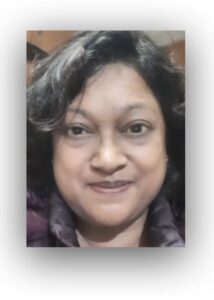
Read the inaugural Speech by Dr. Ivy Hansdak: “Is tribal identity relevant in today’s world?” delivered during the conference titled “Tribes In Transition-II: Reaffirming Indigenous Identity Through Narrative” | Conference report | Video presentation “Tribes in Transition III” (September 2021): Inaugural Session & Keynote Speech by Prof. Anvita Abbi >>
Abstract 26: Folk Adaptations of Tagore and Shakespeare: Reconceptualizing Canons as a Transition from the Periphery to the Centre
Paper presented for “Tribes In Transition-II: Reaffirming Indigenous Identity Through Narrative” (National Conference) – New Delhi
RISHAV CHATTERJEE
Department of Comparative Literature, Jadavpur University, Kolkata
KEYWORDS: PERFORMANCE, ART, TEXT, CULTURE, CONTACT
According to the Constitution of India indigenous people are identified as “tribes”. Our notion of tribal is often shaped by the intimation we experience with their cultural practices primarily through the oral-visual experience of folk drama and community songs. These practices are of immense importance for ensuring the existence of a diversified socio-cultural system which negotiates the rural and urban dichotomy. The level of ‘contact’ that we experience with tribal culture determines not only our awareness of the social compositions of tribes but also the degree of exposure which tribal performance art experiences in order to sustain and evolve.
In West Bengal, the genre of folk performances are increasingly stepping out of ritualistic narratives and embracing popular texts. An example of the same can be gleaned from the tribal performance of Rabindranath Tagore’s ‘Raktakarabi’ which has been showcased at EZCC, Santiniketan. Similarly, of late the stages of Kolkata have witnessed the reaffirmation of tribal performance in the narration of Shakespeare’s Midsummer Nights’ Dream, which has been adapted as Fagun Ratter Goppo by the Rabindra Bharati Repertoire. Both these groups have synthesized the presentation of Shakespeare and Tagore’s classical narrative with tribal performance elements.
Through a greater inspection into the levels of conceptualization, narration and formats of presentation the paper would concentrate on analysing the development of such performances in the context of cultural contact. The primary focus would be on: Tribal formats of adaptation, role the genre of the texts play in cultural negotiations, how such performances play a crucial role in the exposure of tribal cultures, the spaces of such performances negotiating the rural urban dichotomy and such performances reshaping the notion of tribal contact influencing the general definition of tribal.
BIONOTE: Rishav Chatterjee is currently studing for his Masters Degree at the Department of Comparative Literature, Jadavpur University, Kolkata. Theatre has always been a special area of interest and he has been writing and directing plays in a professional capacity for the past 5 years. In 2014, Portia which he wrote as a part of the One Billion Rising program influenced by ‘The Vagina Monologues’, was endorsed by Eve Ensler, who witnessed the premiere. He may be contacted at the email ID: [email protected]
Source: Book of Abstracts for the ICSSR-sponsored Two-Day National Conference Tribes In Transition-II: Reaffirming Indigenous Identity Through Narrative organised by The Department of English & Outreach Programme Jamia Millia Islamia (New Delhi, 27-28 February 2017)
Courtesy Dr. Ivy Hansdak, Assistant Professor, Department of English, Jamia Millia Islamia University New Delhi (email 4 October 2017)
Find publications by reputed authors (add “open access” for freely downloadable content)
Research the above issues with the help of Shodhganga: A reservoir of theses from universities all over India, made available under Open Access >>
See also
eBook | “Where the mind is without fear”: Tagore, Gitanjali and the Nobel Prize
eJournal & eBook | eLearning | Background guide for education
Languages and linguistic heritage
Literature and bibliographies | Literature – fiction | Poetry
Rabindranath Tagore – pioneer in rural education
Video | “Nations don’t make us human – languages make us human”: Ganesh Devy
Tips for using interactive maps
Toggle to normal view (from reader view) should the interactive map not be displayed by your tablet, smartphone or pc browser
For details and hyperlinks click on the rectangular button (left on the map’s header)
Scroll and click on one of the markers for information of special interest
Explore India’s tribal cultural heritage with the help of another interactive map >>